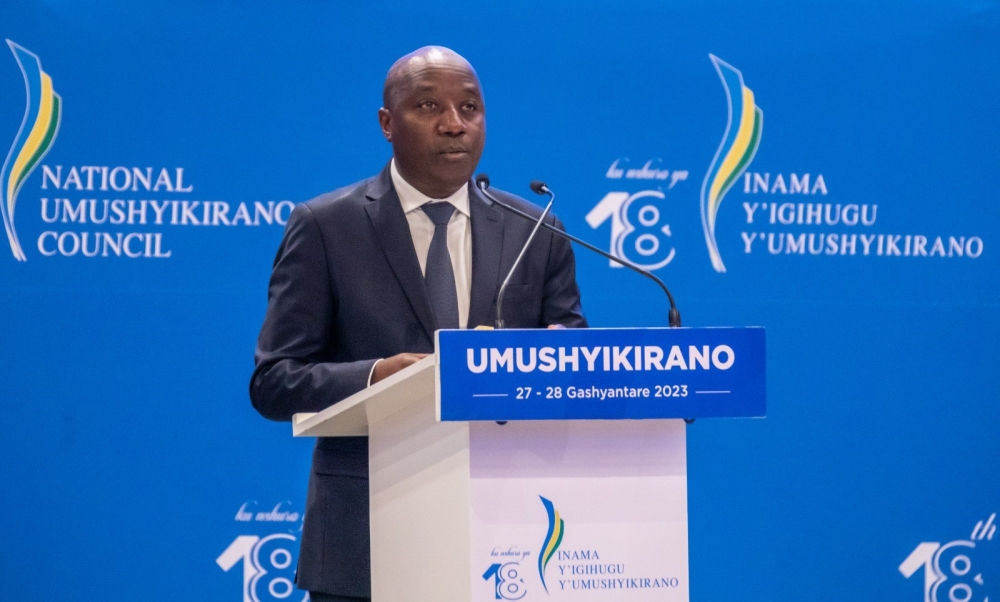

Agricultural produce is expected to double as a result of new interventions, including increased fertiliser subsidy, which the government is making to increase farm productivity, Prime Minister, Edouard Ngirente, has said.
Ngirente disclosed this on February 27, during the National Dialogue Council (Umushyikirano) taking place in Kigali, while making a presentation on Rwanda’s achievements in previous years.
ALSO READ: PM lays out govt plans to contain fertiliser costs
The Premier said the government took various measures to increase agriculture and livestock output. In order to facilitate farmers to get fertilisers at low prices, and increase their use, government increased subsidies (financial support) to farmers, after fertiliser prices increased in the international market.
"In the current fiscal year 2022-2023, about Rwf31 billion was provided in subsidy to farmers, which represents an increase of 93 per cent compared to the previous year. That was in response to the rise in fertiliser prices on the global market, and there was no way we could increase agricultural production without increasing fertiliser use,” he said.
Also, he said the increased fertiliser use yielded results in season A of 2023, "where we expect that production will double in this season compared to season A of the previous year.”
Agriculture season A starts in September of a given year and concludes in February of the following year.
ALSO READ: Agric sector eyes recovery after dismal performance
Meanwhile, in order to reduce the reliance on fertiliser imports, the Premier said that a fertiliser blending plant is under construction through a partnership between the Government of Rwanda and investors.
He said that the plant located in Bugesera District will start production in August this year (2023). The $38 million factory will have the capacity to blend 100,000 tonnes of fertilisers per year.
ALSO READ: Govt to inject Rwf25bn in agriculture insurance
Dealing with drought effects
In line with tackling climate change effects, Ngirente said, there are ongoing efforts to increase irrigated farmland in the country, in order to ensure the sustainability of agricultural production during dry spells.
He indicated that it is expected the irrigated farmland will increase by more than 2,000 hectares in this fiscal year (2022-2023).
According to information from the Ministry of Agriculture and animal resources’ 2021-2022 annual report, the area under irrigation was 68,126 ha.
ALSO READ: Rwanda offers free fertilisers, irrigation as drought bites
Again, Ngirente said, some farmers were helped to get early maturing crop seeds, such as beans and vegetables, as well as drought-resistant crops such as sweet potato vines and cassava cuttings.
"That helped to prevent food insecurity among the population,” he said.
Also, in drought-prone areas, the government supported farmers to deal with the issue by helping them get irrigation equipment, the Premier pointed out.
Talking about agriculture and livestock insurance (against disasters including droughts and floods, as well as diseases), Ngirente said that 43,000 cows, 236,000 small livestock animals, and over 31,000 hectares are covered by the insurance.


